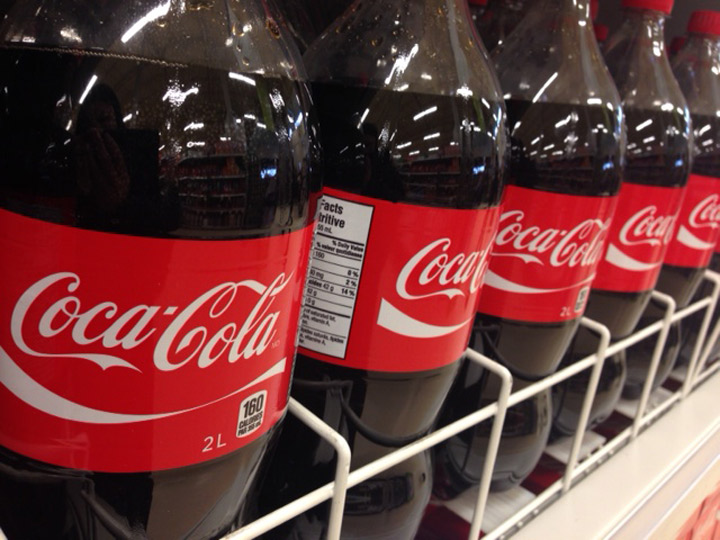Venturing into a supermarket nowadays likely entails an encounter with a tempting offer: cheap pop.

Not just any cheap pop or store brand variety, the name brand stuff – Coca-Cola, Pepsi, Dr. Pepper can all now be found at any given time at steep discounts compared to prices not so long ago.
A 12-pack of 355ml cans has fallen to $3 at times. Two-litre bottles can be found for a buck, or less.
Yet fewer Canadian consumers are biting, opting instead for options with less sugar or artificial sweeteners.
In fact, soft drink prices have descended into “irrational pricing” territory to prop up sales, retail experts at CIBC said a few months back — and even that’s not working.
Coke said last week its North American sales continue to fall this year as part of an industry-wide decline, a fall underscored again on Wednesday by Cott Corp., the lesser-known Canadian soft drink maker of private-label or store brand pop.
Mississauga, Ont.-based Cott reported the amount of carbonated soft drinks it shipped across North America in the latest quarter fell four per cent. In dollar terms, soft drink sales at Cott are off 10 per cent versus the same period a year ago.
“The North American landscape remains competitive, as predicted,” Jerry Fowden, Cott’s chief executive, said on a call with analysts.
Price wars
Cott is putting on a brave face, saying its net volumes when grouped with other products, like sparkling water and juice, are stabilizing, or in management’s words, “flat.”
The price wars being fought between Coke, Pepsi and others have eased a touch too, Fowden said, noting a brief “let up” in the downward pressure in August.
But experts don’t foresee a meaningful rebound in carbonated soft drinks any time soon, if at all.
“It is still apparent that price wars continue,” CIBC analyst Perry Caicco said this week.
Lower consumption
In Canada, the amount of pop being bought is now dropping by about four per cent annually, according to IBIS World, a market researcher, even as prices are marked down.
That corresponds with the plunge in per-capita consumption of carbonated soft drinks among Canadians since the middle of the last decade, when our collective thirst for soda peaked at just under 105 litres of pop consumed per person annually, or 287ml a day.
NPD Group, another market researcher, estimates the sales drop in restaurants including fast-food locations is even steeper, declining by eight per cent last year compared to 2012.
“Carbonated soft drinks are the fastest declining item in the Canadian restaurant market,” Robert Carter, an industry analyst at NPD, said.
MORE: McDonald’s, Coke feel pinch from Canadians’ health kick
Shifting tastes
The decline has fallen disproportionately on cola sales, which when combined with diet cola-flavoured beverages make up nearly two-thirds of the $2.5 billion Canadian soft drink market, which Coke and Pepsi are the leaders with 28 and 25 per cent of sales, respectively.
Coke said last week it was tripling efforts to cut costs in a race to bring expenses in line with retreating sales. The world’s largest beverage maker is also committing to lower the calorie count in its carbonated beverages.
Last month, Coke alongside Pepsi and Dr. Pepper said they’ll work to reduce the caloric hit in their pop beverages by a fifth over the next 10 years, while marketing smaller sizes for smaller servings.
Back in Mississauga, Cott is shifting away from carbonated cola, as well. Fowden said Wednesday sales for its sparkling water, juice and mix products were all trending up.


Comments